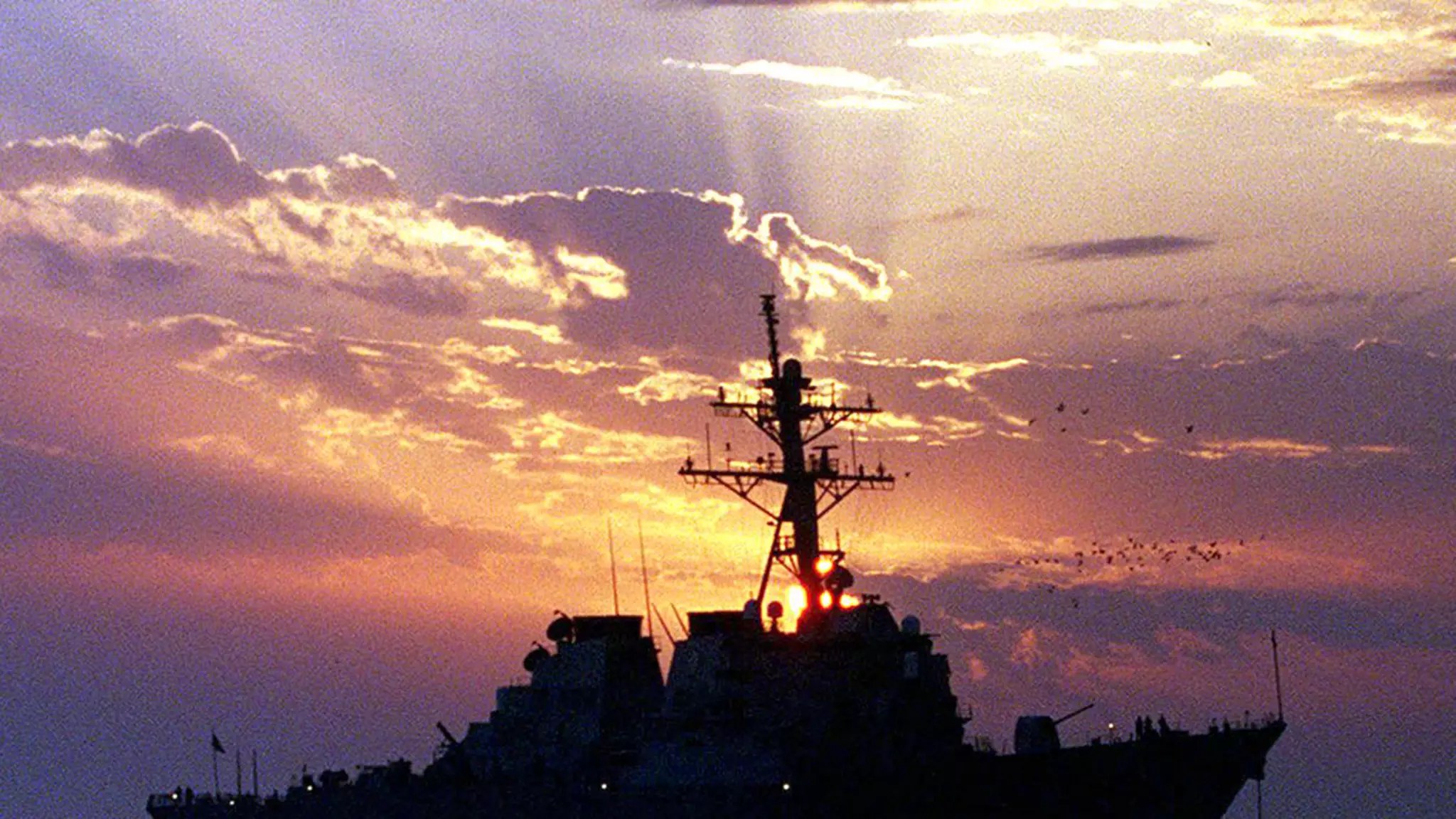Over the weekend, the peaceful waters of the Red Sea turned into a battleground as an American warship faced a relentless attack. The USS Carney, a naval destroyer that patrols the region, was bombarded with a barrage of missiles and drones for a staggering five hours. However, despite the intensity of the assault, Pentagon officials report that the USS Carney successfully repelled a significant portion, if not all, of the incoming fire.
Tragically, it appears that the crossfire between the attackers and the USS Carney may have affected commercial ships accompanying the destroyer. Though none of these ships are of American origin, some are believed to have ties to both British and Israeli entities, both of which are strong allies of the United States. Government officials have identified the Houthi rebels from Yemen as the perpetrators behind this attack. However, it must be noted that the rebels did not explicitly claim the USS Carney as their target.
The Houthi rebels, in solidarity with Hamas, have issued a stern warning to vessels they suspect may originate from Israel, demanding that they steer clear of the area. The ships attacked on Sunday allegedly failed to comply with their orders to evacuate the space, becoming caught up in the escalating conflict. Fortunately, no casualties have been reported thus far. This incident follows the expiry of the ceasefire between Hamas and Israel just last week, leading to the Israeli Defense Forces (IDF) continuing their campaign in Gaza to secure hostage release.
The world now anxiously awaits the response of the United States to this act of aggression by the Houthi rebels. While it remains uncertain how the U.S. government will address this situation, it is undeniably clear that attacking an American warship holds the potential to intensify tensions on an international scale. The repercussions of such an escalation of hostilities could have far-reaching consequences and reshape diplomatic relations in the region.
As the global community grapples with this alarming incident, it is crucial for leaders to exercise restraint and exhaust all diplomatic channels to restore peace in the Red Sea. Prompt and effective communication between the governments involved will be vital in ensuring a measured response, one that underscores the importance of international maritime security while avoiding further bloodshed.
In this volatile time, it is essential for nations to come together and work towards a sustainable resolution. The Red Sea, once known for its tranquil beauty, should not be marred by conflict and aggression. As the United States considers its next move and international condemnations resonate, only time will tell how this chapter in the Yemen missile attack saga will unfold.







Leave a Reply